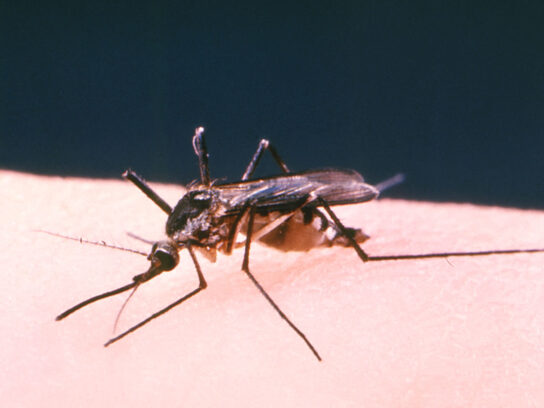
It is that time of year when people are seeing more mosquitoes flying around. That has raised concern about the potential of contracting a mosquito-borne virus.
On Monday, the Maryland Department of Health reported its first human case of West Nile virus this year. An adult man from the Baltimore area tested positive for the disease. He has since recovered.
News about the Maryland case came just days after the public learned Dr. Anthony Fauci, the former director of the National Institute of Allergy and Infectious Diseases, recently contracted West Nile and needed treatment in a hospital.
“Mosquitoes are a nuisance and can be a public health threat,” said Sean O’Donnell, the deputy chief of Public Health Services at the County’s Department of Health and Human Services.
Maryland had 7 cases of West Nile virus last year. The virus has been around since the early 2000s in this region.
West Nile Virus Symptoms
O’Donnell said most people who get West Nile do not even know they are infected because often the symptoms are not severe.
However, he said symptomatic cases often appear between July and September. He said research shows older Americans, and people with compromised immune systems are more at risk of getting a reaction to West Nile.
Those symptoms include fever, headaches, body aches, nausea, diarrhea, and in some cases a rash develops.
Staying Safe From Mosquitoes
Mosquitoes appear more frequently during dusk and dawn, so people may want to avoid being outdoors during those times. O’Donnell recommends people wear protective clothing such as long-sleeved shirts, pants, and socks when they are outside. He suggests people use an insect repellant when outdoors. He said it is also important to remove any standing water from areas around a person’s home. O’Donnell said when people live in a neighborhood it is important for residents to look out for each other.
“Getting rid of mosquito breeding sites takes neighborhood cooperation,” O’Donnell said.
Another Troublesome Virus
Workers in Maryland have identified 128 positive pools of mosquitoes across the state. Thirteen of those positive pools are in the D.C. metro region. So far, only one person has contracted West Nile. Meantime, there have been no signs of another mosquito-borne virus, Eastern Equine Encephalitis (EEE).
On Tuesday, health officials in New Hampshire confirmed a resident died of EEE. It was the first human case of the virus in the state in 10 years. This virus is more deadly than West Nile. About one in three people who contract EEE usually die from the disease. It is rare to see EEE in Montgomery County.
“Historically, EEE mosquito pools are more likely to be seen on the Eastern Shore of Maryland,” O’Donnell said.
Mosquitoes Here to Stay
Mosquitoes and some of the diseases they spread are endemic to this region. They are not going away. Some communities want to reduce the risk of mosquitoes in their neighborhoods. The County does not have a spraying program. Some homeowner groups or local governments could turn to the Maryland Department of Agriculture for help if they are concerned. The Agriculture Department services about 2,100 communities in more than a dozen counties, however, Montgomery County is not currently participating in the Mosquito Control services program.

Comments are closed.